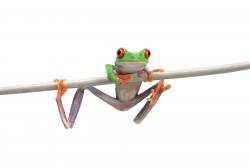A Day At The Bazaar - A Vignette
The heat, dust and smell of urine and human waste rose in waves off the pavement. The beggars at the fringe of the bazaar pleaded for spare money or a bit of food. One woman I noticed was missing most of the bones in her nose and the left side of her face. She was gaunt and gray with dust. She carried a baby in a sling drawn across her chest. The child suckled at one shrunken breast. My mother handed her a few coins and we hurried on. We left the rank smells of the jubes that flanked the street to be engulfed by the market melee. Throngs of people pushed and shoved along the pathways to the stalls that had the choicest offerings and jockeyed to be at the front. In what seemed like a single but erratic voice the crowd shouted out their prices and exchanged money for merchandise. The strong smell of the jube was replaced by the fragrances of the wares that each vender plied. Jute bags filled with aromatic long grained rice, tomatoes, fruit leather rolls, peaches, melons, some cut open and laid out on wagons, warmed by the sun emitting their flavors for my nose to breathe in. The spice vendor had a more permanent spot, an enclosed room, dark and mysterious. Exotic spices kept in open containers filled the air with motes and turned it orange in the fingerlettes of sunlight that stole their way through the heavily draped interior. The rich fabric backdrop added to the sensual nature of the place. It frightened me. I felt I’d get lost in this dark and strange room. My mother took my hand. She’d bought the saffron she’d come after and it was time to go. Our driver’s arms by then had been loaded with fruits and vegetables, now to the butcher section.
The meat market was the most fascinating to me. Entire animals, sheep or beef, were stripped of their clothing, missing their heads and hanging upside down by their hind hocks, empty of entrals, red and sinewy shells, buzzing with flies. My mother stopped buying the slaughtered animals when she discovered that they were sprayed with DDT to control the fly population. She made her way to the live chickens instead. Eventually we raised our own, but when we bought them at market the chickens’ feet and wings were trussed for easy carrying. With our latest “packages” squawking and our shopping done, we made our way back to the car.
The ride through the streets of Tehran excited me. Brightly painted wagons heaped with household goods drawn by donkeys whose necks were strewn with blue beads and bells were as common a sight as cars. Men rode bicycles balancing pallets stacked with flat bread and played dodge ‘em with everything that was traveling at a faster pace. The flat bread they carried was an Iranian mainstay. Each day our cook would buy this fresh, nutty and delicious fare from our neighborhood vender. We watched as one man toppled over and spilled his cargo on the manure littered street. He stopped, brushed off the sheets of bread, re-stacked them on the pallet and off he peddled. Cars, Vespas, donkey drawn carts and bikes went every which way. Drivers hung out of their windows shouting for first dibs to the right of way and cursed when they didn’t get it. Our driver, who was also our houseboy, was patient and experienced. He made his way on the force of his broad smile and happy attitude. Balli was his name and he was a big and beautiful import from Iraq.
